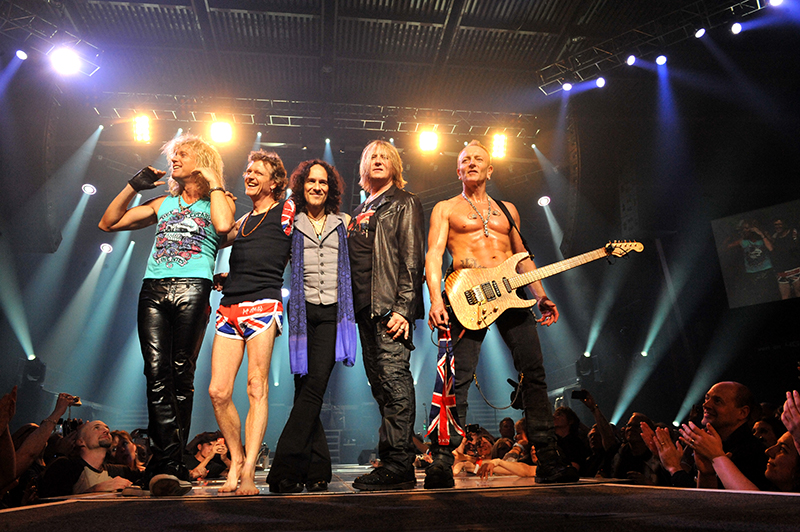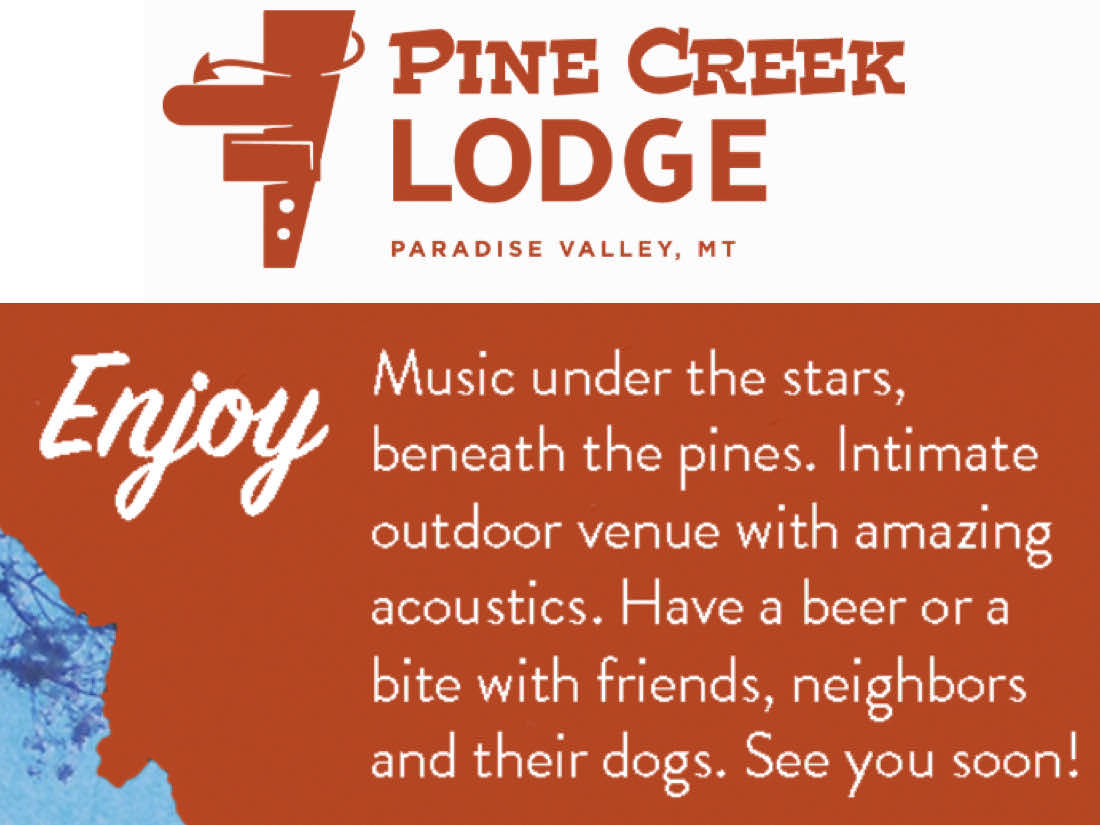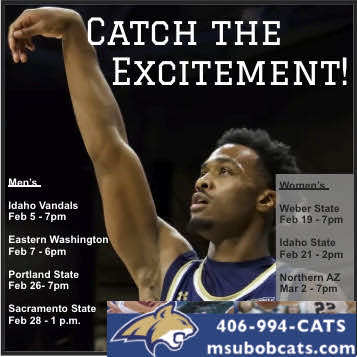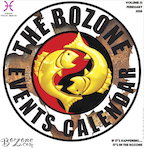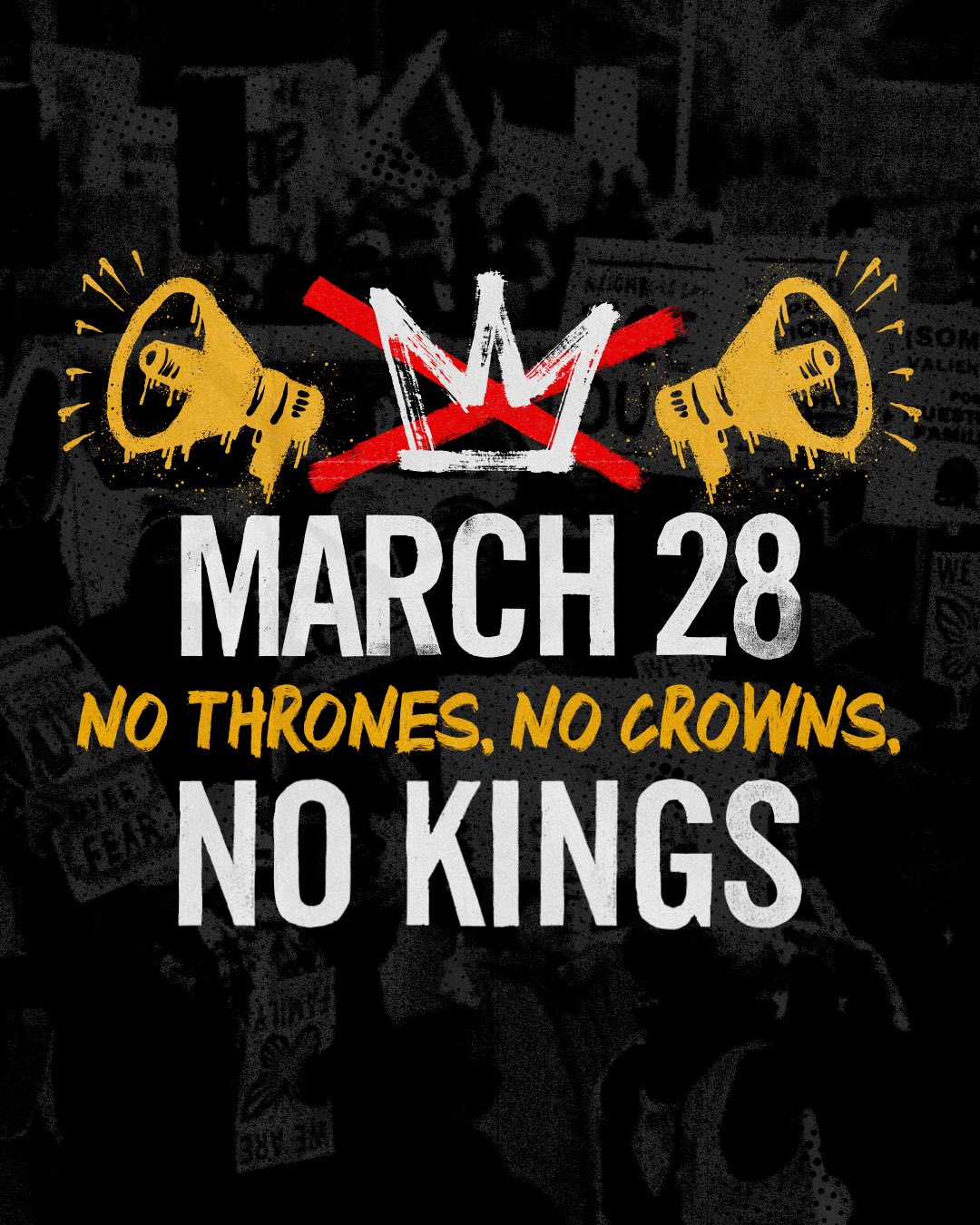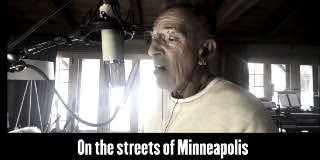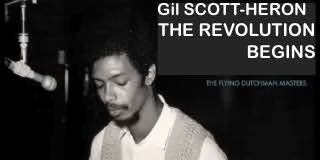Consummate English rockers front evening of Hysteria
With 100 million records sold worldwide and two prestigious Diamond Awards to their credit, Def Leppard — comprised of Joe Elliott (vocals), Vivian Campbell (guitar), Phil Collen (guitar), Rick “Sav” Savage (bass), and Rick Allen (drums) — continues to be one of the most important forces in rock music. Over the course of their career, the band has produced a series of classic, groundbreaking albums that set the sound for generations of music fans and artists alike. The group’s spectacular live shows, filled with powerful melodic rock anthems, have become synonymous with their name. For the past thirty plus years, Def Leppard’s concerts have become must-see events and have quickly made an institution of them in the touring industry as they continue to sell out arenas worldwide.
In anticipation of their Bozeman show, The Rolling Zone hopped on the phone with Collen to talk road memories, artistic freedom, and the music, then and now.
The following interview took place on the afternoon of March 8th.
RZ: Hey Phil.
PC: How are ya?
RZ: Great. Thanks for taking the time.
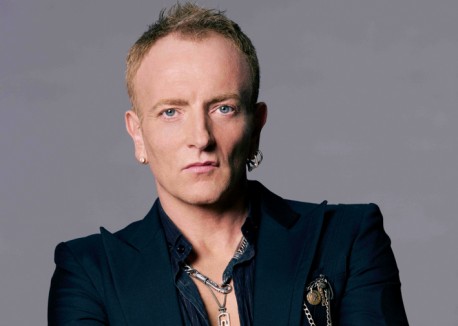
PC: No worries. No worries at all.
RZ: You’re gearing up for the 2017 North American Tour. What are you doing ahead of your first batch of shows?
PC: Well we’ve got a month before the first, so we’ve got a little bit of time. I’m in Sacramento producing, completing recording the new Tesla album as we speak — which is mind-blowingly amazing. We’re all just freaking out at how good it is. If we want to [have a mix of] Queen, Zeppelin, The Beatles. This album kind of gives everyone that. Everyone’s so excited, especially me. We’re digging it.
RZ: That sounds awesome. So what does Def Leppard have planned for this tour? Maybe a blend of what fans know and love with a few surprises mixed in?
PC: We just released a DVD [from a show] that was live in Detroit from 2016. That came about was because everyone kept saying to us at the beginning of that tour, this is the best we’ve ever heard you, best you’ve ever sounded, best the show has ever looked, everything. Detroit was the first show to sell out on that tour and we said, okay let’s record that one and put it out. So we’re actually bringing that show to a lot of places we missed. We didn’t bring that to Bozeman, MT, for example. A bunch of places. So we’re digging in a bit deeper.
RZ: Def Leppard has helped set the standard for what “rock bands” aspire to be. And touching on your work with Tesla, do you feel a sense of mentorship for groups with similar aspirations?
PC: Yes and no. I’m just a conduit, passing what I learned from [record producer/songwriter] Mutt Lange. It was the total inspiration for Def Leppard, really. Our blueprint was a cross between Queen and AC/DC. And Mutt was able to bring that to fruition, make a hybrid of it so it was more palatable for a wider audience. He also did that with Shania Twain, and AC/DC actually. Before that they were a blues rock band, and he actually kind of made it an international superstar band, just by opening up the mind a little bit. So I think, if anything, that’s what I learned from Mutt and that’s really what we’re doing. There’s so much potential in Tesla — so inspired, they’re such great players, and such an amazing live band. We’ve known each other for forever. We took on this artistic endeavor together. It sounds a bit artsy, but they’ve got so many influences, me too, and they needed to come out in their music. It just crossed over, all of those things, and it’s sounding like the classic Beatles stuff, Zeppelin. It’s got all that power and energy and everything. It’s a thrill to be a part of, I’ve got to say.
RZ: Many look up to you, to the band, but you’ve got to have a few role models of your own. Who are you personally inspired by?
PC: Well like I said before, we wouldn’t be if it wasn’t for Mutt Lange. My favorite band of all time was The Police. Again, another hybrid band. Dub reggae punk, and kind of pop music. Sting’s my favorite writer, actually. Even to this day. Even when he does kind of pompous stuff, I still really dig it. I can see it from a different level. That’s amazing. And the Pistols when they came out, it was such an amazing thing. I have the honor of playing with Paul Cook in one of my other bands, Manraze. They’re actually doing a Professionals album, I just guested on one song. Steve Jones is on it, and Paul Cook. It’s kind of a punk thing. It’s just amazing. It’s kind of cool getting a lot of inspiration from different places, really. It can be a book, it can be a movie, it can be a story. Lots of different things kind of blow my skirt, if you like, just kind of gets the stuff moving.
RZ: Def Leppard released its eponymous album in 2015 after a seven-year gap. You were quoted as calling the album “liberating and expressive,” and many have applauded its variety. Are these recordings representative of what’s still to come? Are you guys working on any new material?
PC: I’m always working on Def Leppard stuff, and just songs in general [wherever] they end up. You know, we’re doing a new Delta Deep album. And a couple of the songs that were going to be on the first Delta Deep album, one ended up on the Def Leppard record. It was “Sea of Love,” which should have been a Def Leppard Song, and “Save That Goodness” which ended up being a Tesla song because the guys in the band [said] hey we should do that, it sounds great. I’m constantly writing, and it can kind of go different avenues. With the Def Leppard album, it was very varied, [something] we haven’t really done before. We’ve always had an idea or a brief, we gave ourselves a brief of what the record should be. This one we didn’t, we actually thought it was just going to be a single. We just got inspired by it and kept writing the songs. The great thing about that record, there’s no record company, no business agenda, it’s like pure — we didn’t have to do an album, so it had a different kind of element to it. Something that I’d never experienced, or any of us. It’s not an industry thing. We haven’t got to have twelve songs, we haven’t got to do this, and we ended up having like fourteen songs written. We made music for the love and sake of making. It was a real artistic endeavor. It was like pure coasting, you know, we were cruising and doing our thing. Because of that, that’s why it ended up so varied. It was great. No agenda. It was so liberating, it really was.
RZ: You’ve worked through countless phases of the music industry, from the days of vinyl to the digital age. What are your comments on its current state, creating music?
PC: You know, art in general has always been run by businessmen. Look at modern art. I’ve got a friend who’s a real kind of art buff, she’s in England, and she’s amazing. We were just talking about some of the stuff that’s selling at Sotheby’s [a London auction house], for £48 million and stuff like that, and got into the subject of Bowie, the fact that he gets a Grammy awarded to him after he died. Van Gough is getting thrown out of café’s for being drunk and everyone laughing at his work, and then he died and it’s like “genius!”
RZ: That’s kind of a funny thing.
PC: I think you can’t get too serious and precious about the music industry, you’ve gotta take it all with a pinch of salt and just do your own thing. I find it fascinating. It’s always been run as a business and as a corporation, and if you’re lucky enough to be able to be within that context and have an artistic expression and do your thing, then you’re really succeeding. I feel what we do — we all get off on the fact that we actually get to express and do our thing. We’re a band still accepted by the industry in one form or another, even though it’s not like Oscars, Grammys, tv and all of that stuff. It’s a different thing. We have a really loyal fan base, people really dig our stuff, and we’re just a killer live band. I’m really pleased where we are. Vinyl just became a billion-dollar industry again, and downloads are way down. It’s just amazing how it ebbs and flows. People get WiFi, streaming and that, they haven’t got to download so much anymore. So it constantly changes, and it’s gonna constantly change even more. It’s like life in general — don’t get too comfy because it’s gonna change.
RZ: There are surely many, but can you share with us a stand-out recollection from your time with Def Leppard?
PC: There are so many, I can’t even. There are so many. All these things flash by — Rick Allen falling off the back of the drum riser. We were waiting for him to come in on a song, he stands up, hits a bar. These Spinal Tap moments we’ve had, there’s just so many. Us on a bus going to Australia and “oh my God we left Vivian at the airport.” Just crazy things. A fan climbing up on a ninth-floor balcony to get into Rick Savage’s room. Meeting Prince in a little club in Paris after he played an arena, getting to talk to him, and him getting up on stage and playing a Jimi Hendrix song. I mean just amazing, so many different things.
RZ: You joined Def Leppard in the early 80s, shortly after its inception. What can you say about this group of guys you’ve spent a good portion of your life with?
PC: We’ve spent more time together than any of our own blood relatives. You figure people leave home at eighteen or twenty or whatever — we’ve travelled on busses, been in studios, together, been through births, deaths, marriages, divorces. Everything for thirty-five years. It’s pretty amazing. We have that union, it’s a curse and a blessing. You take that for what it is. You’re family — you fall in, you fall out, but you stick together. And that’s something that we’ve done. I appreciate that. And when we started off — you know I’m from London which is South England, and the guys from Sheffield up at Yorkshire. I remember joining the band and not really being able to understand some of what the guys were saying because their accents were so strong. It’s funny, after a while you’re in a bus and you develop your own language almost, your own accent. I think that’s representative of everything else. You come in being a certain way and you become worldly because of all the traveling — your accent changes, and your outlook changes, your views change, your experience changes. It’s pretty magical when you look at it from that point of view. I love the fact that I have these guys as partners to do that with.
RZ: Very cool. And the fans. Do you have a message for those who continue to stick with this group some thirty-five years and counting?
PC: It’s amazing. And the reason we do that is because they do that. They stick by us, they put up with all our stuff, they wait for us when we’re recording and going to other countries to tour. We’re very appreciative of that faith in us. It really is a give-and-take thing and we appreciate that and that’s why we keep doing it. It’s really cool.
RZ: Well we’re excited for you to bring this tour to Bozeman.
PC: My friend Larry DiMarzio lives in Bozeman, MT. I’ve been using his pickups feverishly for forty-one years. I had my first DiMarzio pickup when I was seventeen in England on my Les Paul. So I’m sure I’m going to see him. It’s really cool.
RZ: That’s great! Best of luck finishing up the Tesla album and safe travels during the tour.
PC: Cheers. Thank you.
Phil Collen and Def Leppard will perform with help from fellow rock ‘n’ roll veterans Tesla and Poison on Wednesday, May 31st at Brick Breeden Fieldhouse at 7pm. Doors at 6pm. Tickets start at $49.50 and are available now at www.TicketsWest.com and the Fieldhouse box office. •
